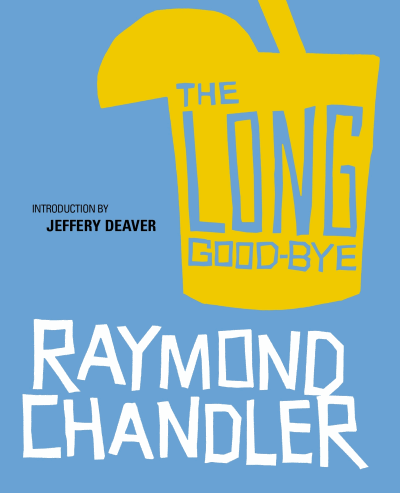Buying Happiness
Despite popular assertions to the contrary, science tells us that money can buy happiness. To a point.
Recent research has begun to distinguish two aspects of subjective well-being. Emotional well-being refers to the emotional quality of an individual’s everyday experience – the frequency and intensity of experiences of joy, stress, sadness, anger, and affection that make one’s life pleasant or unpleasant. Life evaluation refers to the thoughts that people have about their life when they think about it. We raise the question of whether money buys happiness, separately for these two aspects of well-being. We report an analysis of more than 450,000 responses to the Gallup-Healthways Well-Being Index, a daily survey of 1,000 US residents conducted by the Gallup Organization. [. . .] When plotted against log income, life evaluation rises steadily. Emotional well-being also rises with log income, but there is no further progress beyond an annual income of ~$75,000.
For reference, the federal poverty level for a family of four is currently $23,050. Once you reach a little over 3 times the poverty level in income, you’ve achieved peak happiness, as least far as money alone can reasonably get you.
This is something I’ve seen echoed in a number of studies. Once you have “enough” money to satisfy the basic items at the foot of the Maslow’s Hierarchy of Needs pyramid – that is, you no longer have to worry about food, shelter, security, and perhaps having a bit of extra discretionary money for the unknown – stacking even more money up doesn’t do much, if anything, to help you scale the top of the pyramid.

But even if you’re fortunate enough to have a good income, how you spend your money has a strong influence on how happy – or unhappy – it will make you. And, again, there’s science behind this. The relevant research is summarized in If money doesn’t make you happy, then you probably aren’t spending it right (pdf).
Most people don’t know the basic scientific facts about happiness – about what brings it and what sustains it – and so they don’t know how to use their money to acquire it. It is not surprising when wealthy people who know nothing about wine end up with cellars that aren’t that much better stocked than their neighbors’, and it should not be surprising when wealthy people who know nothing about happiness end up with lives that aren’t that much happier than anyone else’s. Money is an opportunity for happiness, but it is an opportunity that people routinely squander because the things they think will make them happy often don’t.
You may also recognize some of the authors on this paper, in particular Dan Gilbert, who also wrote the excellent book Stumbling on Happiness that touched on many of the same themes.
What is, then, the science of happiness? I’ll summarize the basic eight points as best I can, but read the actual paper to obtain the citations and details on the underlying studies underpinning each of these principles.
1. Buy experiences instead of things
Things get old. Things become ordinary. Things stay the same. Things wear out. Things are difficult to share. But experiences are totally unique; they shine like diamonds in your memory, often more brightly every year, and they can be shared forever. Whenever possible, spend money on experiences such as taking your family to Disney World, rather than things like a new television.
2. Help others instead of yourself
Human beings are intensely social animals. Anything we can do with money to create deeper connections with other human beings tends to tighten our social connections and reinforce positive feelings about ourselves and others. Imagine ways you can spend some part of your money to help others – even in a very small way – and integrate that into your regular spending habits.
3. Buy many small pleasures instead of few big ones
Because we adapt so readily to change, the most effective use of your money is to bring frequent change, not just “big bang” changes that you will quickly grow acclimated to. Break up large purchases, when possible, into smaller ones over time so that you can savor the entire experience. When it comes to happiness, frequency is more important than intensity. Embrace the idea that lots of small, pleasurable purchases are actually more effective than a single giant one.
4. Buy less insurance
Humans adapt readily to both positive and negative change. Extended warranties and insurance prey on your impulse for loss aversion, but because we are so adaptable, people experience far less regret than they anticipate when their purchases don’t work out. Furthermore, having the easy “out” of insurance or a generous return policy can paradoxically lead to even more angst and unhappiness because people deprived themselves of the emotional benefit of full commitment. Thus, avoid buying insurance, and don’t seek out generous return policies.
5. Pay now and consume later
Immediate gratification can lead you to make purchases you can’t afford, or may not even truly want. Impulse buying also deprives you of the distance necessary to make reasoned decisions. It eliminates any sense of anticipation, which is a strong source of happiness. For maximum happiness, savor (maybe even prolong!) the uncertainty of deciding whether to buy, what to buy, and the time waiting for the object of your desire to arrive.
6. Think about the details
We tend to gloss over details when considering future purchases, but research shows that our happiness (or unhappiness) largely lies in exactly those tiny details we aren’t thinking about. Before making a major purchase, consider the mechanics and logistics of owning this thing, and where your actual time will be spent once you own it. Try to imagine a typical day in your life, in some detail, hour by hour: how will it be affected by this purchase?
7. Beware of comparison shopping
Comparison shopping focuses us on attributes of products that arbitrarily distinguish one product from another, but have nothing to do with how much we’ll enjoy the purchase. They emphasize characteristics we care about while shopping, but not necessarily what we’ll care about when actually using or consuming what we just bought. In other words, getting a great deal on cheap chocolate for $2 may not matter if it’s not pleasurable to eat. Don’t get tricked into comparing for the sake of comparison; try to weight only those criteria that actually matter to your enjoyment or the experience.
8. Follow the herd instead of your head
Don’t overestimate your ability to independently predict how much you’ll enjoy something. We are, scientifically speaking, very bad at this. But if something reliably makes others happy, it’s likely to make you happy, too. Weight other people’s opinions and user reviews heavily in your purchasing decisions.
Happiness is a lot harder to come by than money. So when you do spend money, keep these eight lessons in mind to maximize whatever happiness it can buy for you. And remember: it’s science!








